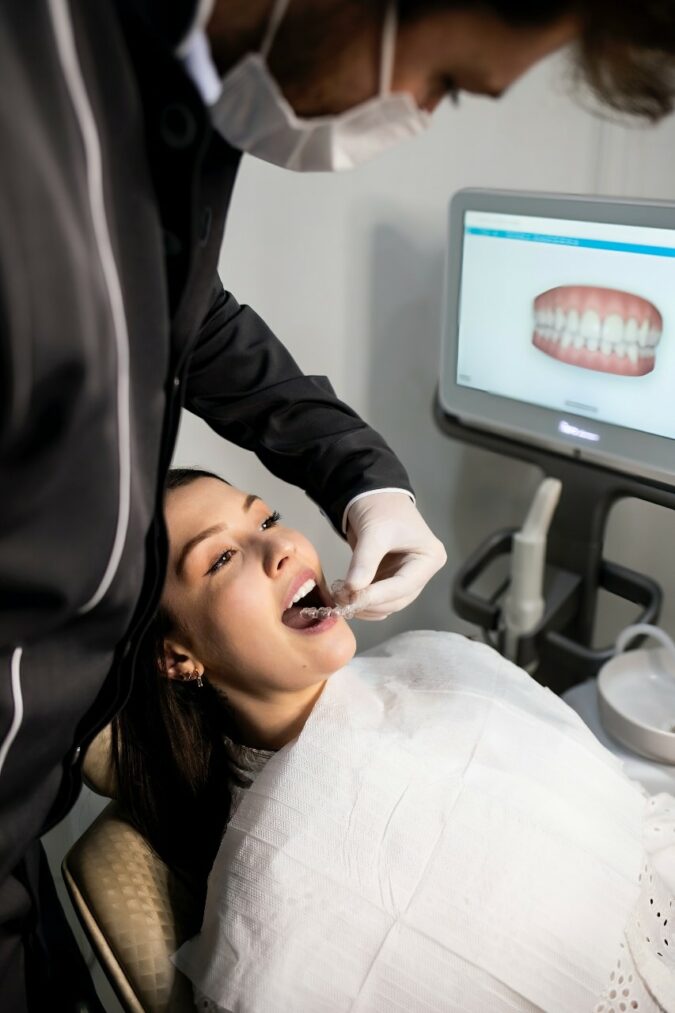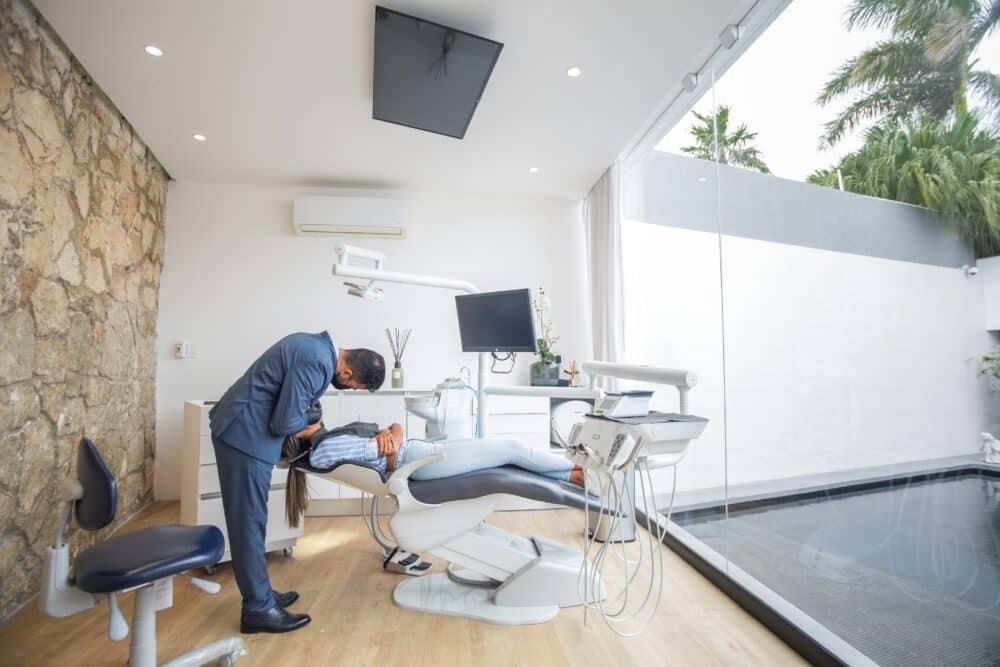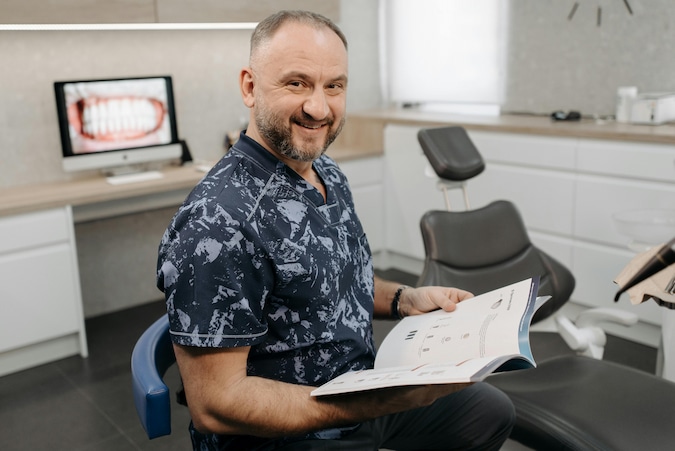
Best Self-Employed Dental Insurance Plans [Comprehensive Guide]

Dental Insurance Basics
If you’re self-employed—whether you’re a freelancer, independent contractor, gig worker, or small business owner—finding an affordable dental insurance plan can feel like a daunting task. Dental coverage works much like traditional health insurance: you pay a premium to an insurer, who then pays a portion of your dental care costs.
According to the American Dental Association (ADA) , “Preventative care, such as regular checkups and cleanings, is one of the most cost-effective ways to avoid expensive procedures in the future.” This underscores the importance of having some form of dental coverage in place.
When researching comprehensive self-employed dental coverage options , consider whether you want a stand-alone dental plan, a discount program, or a more comprehensive policy through a health insurance marketplace. Some insurance companies bundle dental and vision coverage, which can be advantageous if you need both.
Learn more about uninsured dental care costs if you’re exploring non-insurance alternatives.
Importance of Dental Insurance for the Self-Employed
Being your own boss certainly has perks, but it also comes with challenges—like the lack of employer-sponsored benefits. According to Kaiser Family Foundation data on employer health benefits , many working Americans rely on dental benefits provided by employers. If you’re self-employed, you must secure coverage on your own to avoid hefty out-of-pocket expenses.
Dr. Jane Smith, DDS, a member of the Academy of General Dentistry (AGD) , explains: “Establishing regular dental checkups and cleanings can lead to early detection of issues like gum disease or cavities, preventing complications that could cost thousands of dollars. This is crucial for self-employed professionals who can’t afford downtime due to health issues.”
Poor dental health can affect your ability to work—especially if you experience pain or infection that requires lengthy treatment. Beyond the physical toll, untreated oral conditions can lead to serious health complications, including heart disease or diabetes. Simply put, dental coverage for freelancers and small business owners is an essential safeguard for both health and productivity.
Available Self-Employed Dental Insurance Options
Self-employed individuals can choose from numerous state-specific dental plan options and programs. Below are the main types to explore:
-
Traditional Dental Insurance
Covers preventive services (cleanings, X-rays) at or near 100%, plus a range of basic and major procedures. Premiums can be higher, but they typically offer broader coverage.
-
Discount Dental Plans
Not insurance, but members pay an annual fee for access to reduced rates from participating dentists. Best for those who want some cost relief but don’t mind paying for most services out-of-pocket.
-
Dental HMO Plans
Often require choosing a primary care dentist in-network. Generally, lower premiums, but limited provider selection. Suitable if you live in an area with a strong HMO network.
-
Dental PPO Plans
Provide flexibility to see out-of-network dentists, although at a higher cost. Usually have larger networks, making them popular among self-employed professionals who value choice.
-
Dental Indemnity Plans
Fee-for-service model that allows you to see any dentist. You pay a portion of each service, and the plan reimburses some or most of the remainder, depending on coverage limits.
-
Dental Savings Plans
Similar to discount dental plans. Pay an annual fee to get discounted rates on services, from fillings to braces. Great for those who want a predictable discount but don’t require full insurance.
-
Individual Dental Insurance Plans
Offered by major insurers; often have premiums and an annual maximum benefit. Some require a waiting period before coverage begins. Always compare policy details to ensure it meets your needs.
-
Health Savings Account (HSA)
If you have a high-deductible health plan (HDHP), you can contribute pre-tax dollars to an HSA and use them for eligible dental expenses. Funds roll over annually, offering a savings cushion for major dental work.
-
ACA Exchanges
Some ACA open enrollment periods feature separate or embedded dental benefits. Check Healthcare.gov or your state’s marketplace to see if dental options are offered.
Real-World Example #1: Mark, a freelance graphic designer in California, needed a root canal. Without insurance, the procedure would have cost him $2,000 out-of-pocket. With a mid-tier PPO plan that cost him around $30 per month, he only paid $800 for the procedure—saving $1,200.
Real-World Example #2: Lisa, an independent consultant in Texas, focused on preventative care with twice-yearly checkups and cleanings. Thanks to her discount dental plan, she paid about half the average cost for routine visits and prevented minor cavities from turning into expensive crowns.
Benefits of Dental Insurance for Freelancers
- Cost Savings: Insurance often covers 100% of preventive care, reducing the out-of-pocket burden for routine visits.
- Preventative Care: Regular cleanings and X-rays help detect issues early, preventing bigger bills later.
- Emergency Coverage: Most plans offer partial or full coverage for urgent treatments like root canals.
- Varied Plan Choices: From low-premium HMOs to flexible PPOs, there’s an option for every budget.
- Quality Network Access: Reputable insurers partner with large networks of qualified dentists.
- Affordability: Many policies start at under $40/month, making them accessible to most freelancers.
- Flexibility: Choose the coverage that best fits your unique business and personal needs.
- Reimbursement for Major Work: Plans may help with implants, crowns, or orthodontics.
- Tax Benefits: Premiums may be deductible for the self-employed—consult a tax professional.
- Peace of Mind: Avoid unexpected financial strain from dental emergencies.
Is It Necessary to Purchase Dental Insurance?

Dental insurance isn’t legally required in the United States. However, skipping coverage can be risky. Simple cleanings or fillings might be manageable out-of-pocket, but procedures like root canals or implants can cost thousands of dollars. According to a 2024 update from the Centers for Medicare & Medicaid Services (CMS) , dental costs continue to rise annually, making coverage more important than ever.
If you have excellent oral health, a basic or discount plan could suffice. But if you’ve had dental issues in the past or anticipate major work soon, a more comprehensive plan might save you significant money. For additional financial protection, consider adding hospital indemnity coverage to your policy mix, especially if you worry about medical emergencies beyond dental needs.
How Much Does Self-Employed Dental Insurance Cost?
The annual cost of dental insurance for freelancers can vary widely—anywhere from $200 to $700 or more, depending on coverage level and location. For example, California may have higher premiums than Texas due to regional cost-of-living differences.
When comparing state-by-state rates, you can review available coverage options in your state for the latest info.
Available Self-Employed Dental Insurance Options
Self-employed individuals can choose from numerous state-specific dental plan options and programs. Below are the main types to explore:
-
Traditional Dental Insurance
Covers preventive services (cleanings, X-rays) at or near 100%, plus a range of basic and major procedures. Premiums can be higher, but they typically offer broader coverage.
-
Discount Dental Plans
Not insurance, but members pay an annual fee for access to reduced rates from participating dentists. Best for those who want some cost relief but don’t mind paying for most services out-of-pocket.
-
Dental HMO Plans
Often require choosing a primary care dentist in-network. Generally, lower premiums, but limited provider selection. Suitable if you live in an area with a strong HMO network.
-
Dental PPO Plans
Provide flexibility to see out-of-network dentists, although at a higher cost. Usually have larger networks, making them popular among self-employed professionals who value choice.
-
Dental Indemnity Plans
Fee-for-service model that allows you to see any dentist. You pay a portion of each service, and the plan reimburses some or most of the remainder, depending on coverage limits.
-
Dental Savings Plans
Similar to discount dental plans. Pay an annual fee to get discounted rates on services, from fillings to braces. Great for those who want a predictable discount but don’t require full insurance.
-
Individual Dental Insurance Plans
Offered by major insurers; often have premiums and an annual maximum benefit. Some require a waiting period before coverage begins. Always compare policy details to ensure it meets your needs.
-
Health Savings Account (HSA)
If you have a high-deductible health plan (HDHP), you can contribute pre-tax dollars to an HSA and use them for eligible dental expenses. Funds roll over annually, offering a savings cushion for major dental work.
-
ACA Exchanges
Some ACA open enrollment periods feature separate or embedded dental benefits. Check Healthcare.gov or your state’s marketplace to see if dental options are offered.
Best Dental Insurance Providers for Self-Employed
Below is a numbered list of top-rated dental insurance providers, each offering unique benefits tailored for freelancers and small business owners:
-
Dental Insurance Shield by SelfGood
If you’re looking for a low-cost dental plan that emphasizes easy access to preventative care, Dental Insurance Shield by SelfGood may be your answer. It’s designed with self-employed individuals in mind, offering:
- No waiting period on 100% in-network coverage for diagnostic and preventive services (e.g., oral exams, cleanings, radiographs, and fluoride treatments).
- Coverage for minor services such as fillings, periodontal prophylaxes, denture repairs, and other routine treatments.
- Low deductible: Just $50 per individual or $150 per family, plus a $1,000 annual maximum benefit.
- Focus: Dental Insurance Shield focuses on keeping essential dental care affordable, making it especially appealing if you prioritize routine checkups and minor restorative work. It’s a straightforward solution for freelancers, gig workers, and other self-employed professionals who want peace of mind without breaking the bank.
-
Careington
Known for discount-style plans with no annual maximums. Ideal if you want immediate savings on common procedures without the hassle of claim forms.
-
Ameritas
Offers both PPO and HMO options, often with no waiting period. Great for individuals seeking a large network of providers and straightforward plan structures.
-
Delta Dental
One of the largest U.S. dental insurers, featuring broad networks and flexible plan tiers. Many freelancers appreciate Delta’s reputation and customer service.
-
Guardian
Known for competitive rates and robust PPO plans with no annual coverage limits in certain tiers. Excellent for those needing more extensive coverage.
-
Cigna
Offers a variety of plan levels, including basic and premium PPOs. Often includes coverage for orthodontics, making it a solid choice for families.
-
UnitedHealthcare
Provides both dental-only and bundled health+dental plans. Good network size and easy-to-use online tools for claims and provider searches.
-
MetLife
Features nationwide PPO networks, plus a few HMO options in select states. Known for customer-friendly policies and consistent claim payouts.
Maximizing Your Dental Insurance Benefits
- Monitor Your Annual Maximum: Schedule procedures strategically so you don’t exceed your coverage limit too soon.
- Check Waiting Periods: If you need major work, confirm whether there’s a waiting period in your plan.
- Utilize Preventive Care: Take advantage of fully covered services like cleanings to avoid bigger issues later.
- Flexible Spending Accounts (FSAs): Consider an FSA or HSA to use pre-tax funds for dental costs.
- Keep Receipts: Save all receipts in case you need them for reimbursements or tax deductions.
- Annual Checkups: Avoid skipping regular exams. Early detection is cheaper and less invasive.
- Explore Alternatives: If your plan doesn’t cover certain services, look into discount plans or in-office financing.
12 Tips for Maintaining Good Oral Health on a Budget

- Brush at least twice daily with fluoride toothpaste.
- Floss once a day to remove plaque between teeth.
- Visit a dentist regularly for checkups and cleanings.
- Limit sugary snacks to reduce cavity risks.
- Drink plenty of water to rinse away food debris.
- Use a fluoride rinse or mouthwash for extra protection.
- Quit smoking to lower risks of gum disease and oral cancer.
- Use a straw for sugary drinks to minimize contact with teeth.
- Avoid using teeth as tools to open packaging.
- Ask about affordable dental services at local clinics or schools.
- Invest in a quality toothbrush—consider an ADA-approved electric model.
- Consider dental insurance or discount plans to reduce costs for routine and major care.
Bottom Line
Dental insurance is a crucial investment for self-employed individuals looking to protect both their health and finances. While it’s not legally required, the right policy can save you thousands of dollars over time. Carefully weigh plan types, coverage limits, and provider networks to find the best fit for your budget and needs.
For additional insights on choosing coverage, visit our detailed resource on dental insurance . If you’re exploring broader insurance options—like gap health coverage or indemnity policies—browsing topics such as hospital indemnity plans can enhance your overall protection strategy.





